If you’re involved in international trade, you’ve probably come across INCOTERMS. These are standardized trade terms that define the responsibilities of buyers and sellers in global shipments.
Published by the International Chamber of Commerce (ICC) in 1936, INCOTERMS help avoid misunderstandings about shipping costs, risk transfer, and delivery obligations. The latest version, INCOTERMS 2020, is currently in use and includes 11 trade terms that apply to various modes of transport.
In this article, you’ll learn about:
- INCOTERMS for any mode of transport, such as EXW, FCA, and DAP.
- INCOTERMS for sea and inland waterway transport, including FOB, CIF, and more.
- How are INCOTERMS used in logistics?
- INCOTERMS cost implications and much.
Understanding these terms can make shipping smoother and reduce risks. Let’s dive into the details!
INCOTERMS Rules for Any Mode of Transport
The following INCOTERMS can be used for shipments regardless of whether they move by land, sea, or air:
1. EXW (Ex Works)
- Seller’s responsibility: Makes goods available at their premises (factory, warehouse, etc.).
- Buyer’s responsibility: Handles all transportation, export duties, and risk from pickup.
- Best for: Buyers who have full control over logistics.
2. FCA (Free Carrier)
- Seller’s responsibility: Delivers goods to a carrier chosen by the buyer at an agreed location.
- Buyer’s responsibility: Takes over once goods are handed to the carrier.
- Best for: Exports where the buyer arranges the main transport.
3. CPT (Carriage Paid To)
- Seller’s responsibility: Pays for transportation to the destination.
- Buyer’s responsibility: Takes over risk once goods are handed to the first carrier.
- Best for: Buyers who want freight costs covered but can handle risks.
4. CIP (Carriage and Insurance Paid To)
- Seller’s responsibility: Covers freight and insurance until goods reach the destination.
- Buyer’s responsibility: Takes over risk once the goods are handed to the first carrier.
- Best for: Buyers who want some insurance coverage included.
5. DAP (Delivered at Place)
- Seller’s responsibility: Covers transportation up to a specific destination.
- Buyer’s responsibility: Handles unloading and import duties.
- Best for: Importers who prefer door-to-door delivery but can handle customs clearance.
6. DPU (Delivered at Place Unloaded)
- Seller’s responsibility: Covers transport and unloading at the agreed location.
- Buyer’s responsibility: Handles import duties and final delivery.
- Best for: Buyers who want goods delivered and unloaded at a specific location.
7. DDP (Delivered Duty Paid)
- Seller’s responsibility: Covers all costs, including customs clearance and import duties.
- Buyer’s responsibility: Receives the goods with no extra charges.
- Best for: Buyers who want a hassle-free delivery with all costs covered.
INCOTERMS Rules for Sea and Inland Waterway Transport
These terms apply only to shipments that move by sea or inland waterways and are commonly used in bulk or containerized cargo.
1. FAS (Free Alongside Ship)
- Seller’s responsibility: Delivers goods next to the ship at the port.
- Buyer’s responsibility: Handles loading, freight, and import costs.
- Best for: Buyers managing their own shipping from the port of origin.
2. FOB (Free on Board)
- Seller’s responsibility: Covers costs until goods are loaded onto the vessel.
- Buyer’s responsibility: Takes over once the goods are on board.
- Best for: Buyers who want control over the ocean freight.
3. CFR (Cost and Freight)
- Seller’s responsibility: Pays for transport to the destination port.
- Buyer’s responsibility: Handles unloading, import duties, and final delivery.
- Best for: Buyers who prefer freight costs included but can handle customs and inland transport.
4. CIF (Cost, Insurance, and Freight)
- Seller’s responsibility: Pays for transport and insurance to the destination port.
- Buyer’s responsibility: Handles unloading, import duties, and final delivery.
- Best for: Buyers who want added insurance coverage.
What Do INCOTERMS Not Cover?
While INCOTERMS define cost responsibilities and risk transfer, they do not cover everything in international trade. Key exclusions include:
- Ownership & Title Transfer – INCOTERMS define risk transfer, but not when ownership legally passes.
- Payment Terms & Pricing – They don’t regulate payment methods, amounts, or timelines.
- Liability for Contract Breaches – No coverage for damaged goods due to poor packaging or late deliveries.
- Cargo Insurance – Only CIF & CIP require insurance; others depend on the agreement.
- Customs Compliance & Licensing – No rules for import/export licenses, tariffs, or trade restrictions.
- Freight Delays & Force Majeure – No liability for port congestion, strikes, or unforeseen delays.
How are INCOTERMS Used in Logistics?
INCOTERMS play a crucial role in logistics by defining who is responsible for what in an international shipment. They help ensure smooth coordination between buyers, sellers, and logistics providers by clearly outlining cost responsibilities, risk transfer points, and shipping obligations. Here’s how INCOTERMS are used in logistics:
1. Determining Cost Responsibilities
INCOTERMS specify which party pays for transportation, insurance, customs duties, and other logistics costs. For example, in EXW (Ex Works), the buyer bears all costs from the seller’s location, while in DDP (Delivered Duty Paid), the seller covers everything, including customs duties and taxes.
2. Defining Risk Transfer Points
Each INCOTERM sets a point where the risk of loss or damage shifts from the seller to the buyer. For instance, under FOB (Free on Board), the risk transfers once the goods are loaded onto the ship, whereas under CIF (Cost, Insurance, and Freight), the seller covers insurance up to the destination port.
3. Simplifying Customs and Documentation
INCOTERMS help clarify who is responsible for customs clearance, documentation, and compliance with local regulations. In FCA (Free Carrier), the seller handles export clearance, while in DDP, they take care of both export and import customs.
4. Aiding in Freight Planning and Carrier Selection
Logistics providers and freight forwarders use INCOTERMS to determine the most efficient shipping routes, modes of transport, and handling processes. Terms like CPT (Carriage Paid To) indicate that the seller arranges freight to a specified location, helping in carrier coordination.
5. Reducing Disputes and Delays
By setting clear guidelines on costs, risk, and responsibilities, INCOTERMS minimize misunderstandings between buyers and sellers. This ensures smooth delivery, avoiding disputes over who should pay for damages, customs fees, or unexpected shipping delays.
6. Enhancing Supply Chain Efficiency
Companies use INCOTERMS strategically to optimize their supply chain. For example, a buyer preferring control over inland transportation may choose FOB, while one looking for a hassle-free delivery may opt for DAP (Delivered at Place) or DDP.
In logistics, selecting the right INCOTERM is key to avoiding unexpected costs, delays, and risks. Whether you’re a shipper, exporter, or freight forwarder, understanding INCOTERMS ensures a smoother and more efficient shipping process.
INCOTERMS and Their Cost Implications
Understanding the cost implications of INCOTERMS is essential for managing international shipping expenses effectively. INCOTERMS determine who pays for which part of the shipping process, impacting your overall logistics budget.
1. A9/B9 – Cost Allocations in INCOTERMS
Each INCOTERM includes an A9/B9 clause, which clearly defines the cost responsibilities for buyers and sellers. These cost allocations include:
- Export and import duties
- Transportation and freight charges
- Cargo insurance (if applicable)
- Terminal handling and loading/unloading fees
For example:
- In EXW (Ex Works), the buyer covers all costs from the seller’s premises.
- In DDP (Delivered Duty Paid), the seller pays for everything, including import duties.
2. Impact of INCOTERM Revisions on Costs
INCOTERM updates can shift cost responsibilities. One major change in INCOTERMS 2020 was the revision to FCA (Free Carrier), allowing buyers and sellers to agree on issuing a Bill of Lading after goods are handed over. This affects shipping documentation costs and risk management strategies.
How INCOTERMS Affect Total Shipping Costs
- Choosing FOB instead of CIF can lower costs by allowing buyers to negotiate their own freight and insurance.
- DAP vs. DDP: DDP is more expensive for sellers as it includes import duties and taxes, while DAP shifts these costs to the buyer.
- CPT vs. CIP: CIP includes higher insurance coverage, adding to the total cost.
Key Summary
Selecting the right INCOTERM is not just about risk—it directly affects your total logistics spend. If you’re an exporter shipping from India to the USA, you need a logistics partner that offers cost transparency, efficient customs clearance, and end-to-end shipment tracking.
Intoglo specializes in seamless door-to-door FCL shipments from India to the USA, covering:
- Origin pickup & customs clearance (PAN India pickups in 24 hours)
- Ocean freight with contracts from major shipping lines
- Destination CFS, customs clearance & last-mile delivery in the USA
- Direct trucking network, warehousing, and next-gen technology solutions
- Real-time shipment tracking from pickup to delivery
- Transparent quotation with cost breakdown and clear terms & conditions
- Instant updates via WhatsApp for complete visibility
Let Intoglo handle your logistics seamlessly. Get in touch today!
How to Choose the Right INCOTERM for Your Shipment
Selecting the right INCOTERM is crucial for smooth international shipping. It determines who pays for what, where the risk transfers, and who handles logistics. Choosing the wrong one can lead to unexpected costs, delays, and disputes. Here’s how you can pick the best INCOTERM for your shipment:
1. Consider Your Control Over the Shipment
- If you want full control over logistics, including freight forwarding and customs clearance, choose EXW (Ex Works) or FOB (Free on Board).
- If you prefer the seller to handle most of the shipping process, go for CIF (Cost, Insurance, and Freight), DAP (Delivered at Place), or DDP (Delivered Duty Paid).
2. Determine Your Risk Tolerance
- Higher risk for the buyer: EXW and FCA (Free Carrier) place most of the responsibility on the buyer.
- Lower risk for the buyer: DDP is the safest for buyers as the seller takes care of everything.
- Balanced risk: FOB and CFR (Cost and Freight) offer a middle ground, where the seller handles shipping to the port but the buyer takes over from there.
3. Assess Cost Responsibilities
- If you want to minimize upfront costs, choose EXW or FOB, where you arrange transportation yourself.
- If you prefer an all-in-one price, CIF, DDP, or DAP may be better, as the seller covers more logistics costs.
- For a cost-effective balance, CPT (Carriage Paid To) allows the seller to cover transport, while the buyer handles import clearance.
4. Check Customs and Compliance Requirements
- If you don’t want to deal with customs clearance, DDP is best, as the seller takes care of both export and import procedures.
- If you want control over import duties and clearance, DAP or FCA might be a better choice.
5. Understand the Mode of Transport
- For all transport modes (land, air, sea): Use EXW, FCA, CPT, CIP, DAP, DPU, or DDP.
- For sea and inland waterway shipments: Use FAS, FOB, CFR, or CIF.
6. Consider Your Business Strategy
- If you’re a small business or first-time exporter, CIF or DDP can be easier since the seller handles most logistics.
- If you’re an experienced importer/exporter, EXW or FOB can offer cost savings and greater control.
Conclusion
INCOTERMS play a crucial role in international trade by defining the responsibilities of buyers and sellers. Choosing the right INCOTERM impacts costs, risk management, and logistics efficiency. However, since INCOTERMS do not cover ownership transfer, payment terms, or customs compliance, working with a reliable logistics partner is essential for a smooth shipping experience.
Intoglo simplifies door-to-door FCL shipments from India to the USA, handling origin pickup, customs clearance, ocean freight, and last-mile delivery with complete transparency. Operating from all major Indian ports (Nhava Sheva, Mundra, Pipavav) and ICDs (Garhi, Tughlakabad, Chawapayal, Dadri, etc.), Intoglo offers internal filing of AMS / ISF and express clearance facilities.
With offices in Delhi, Chennai, Mumbai, Ludhiana, and the USA, Intoglo provides PAN India pickups in 24 hours.


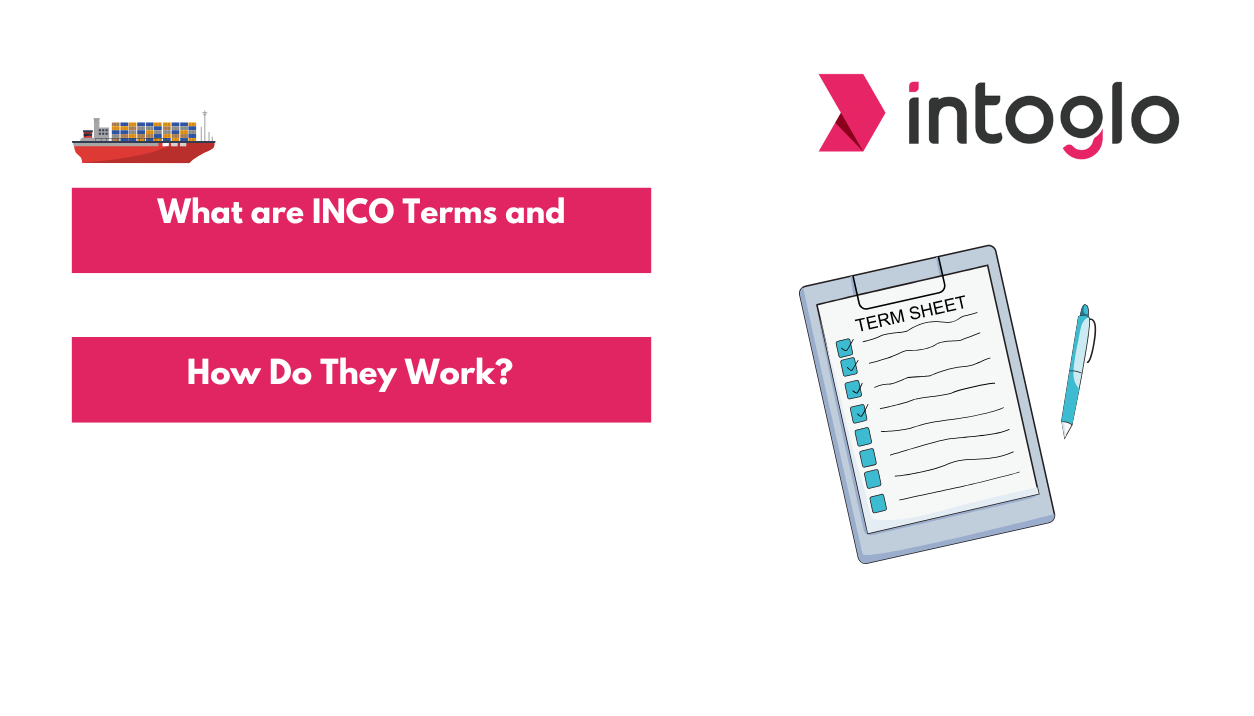
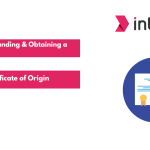
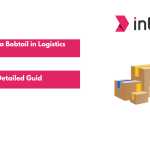
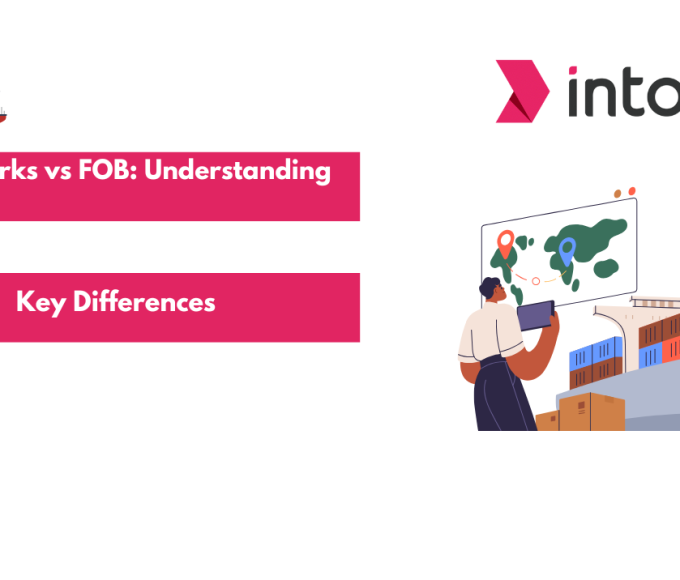
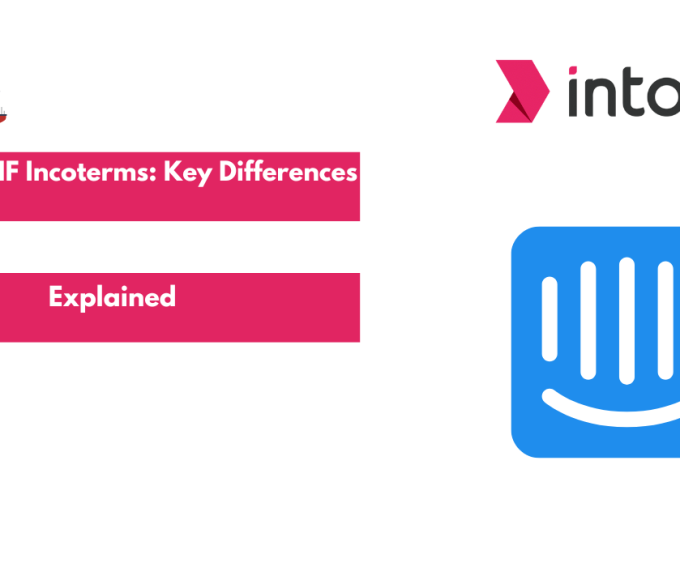
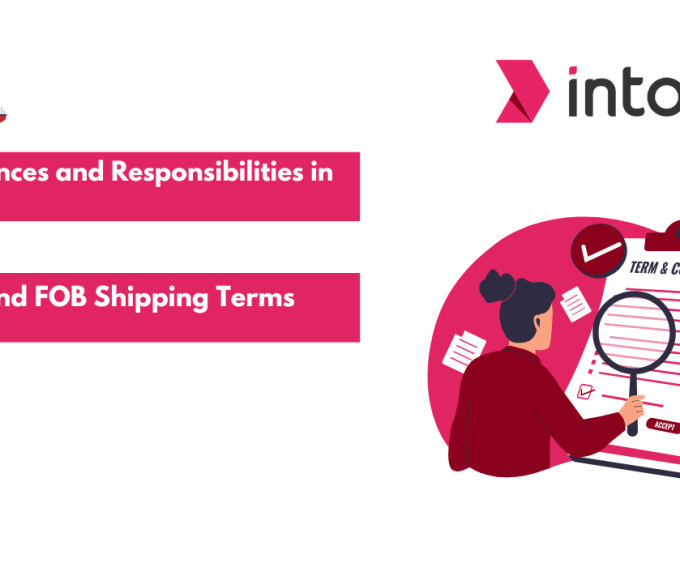
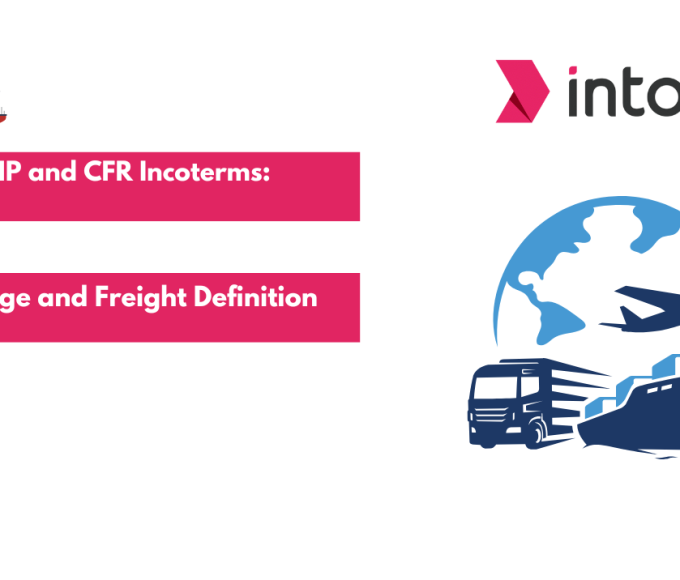
Leave a comment